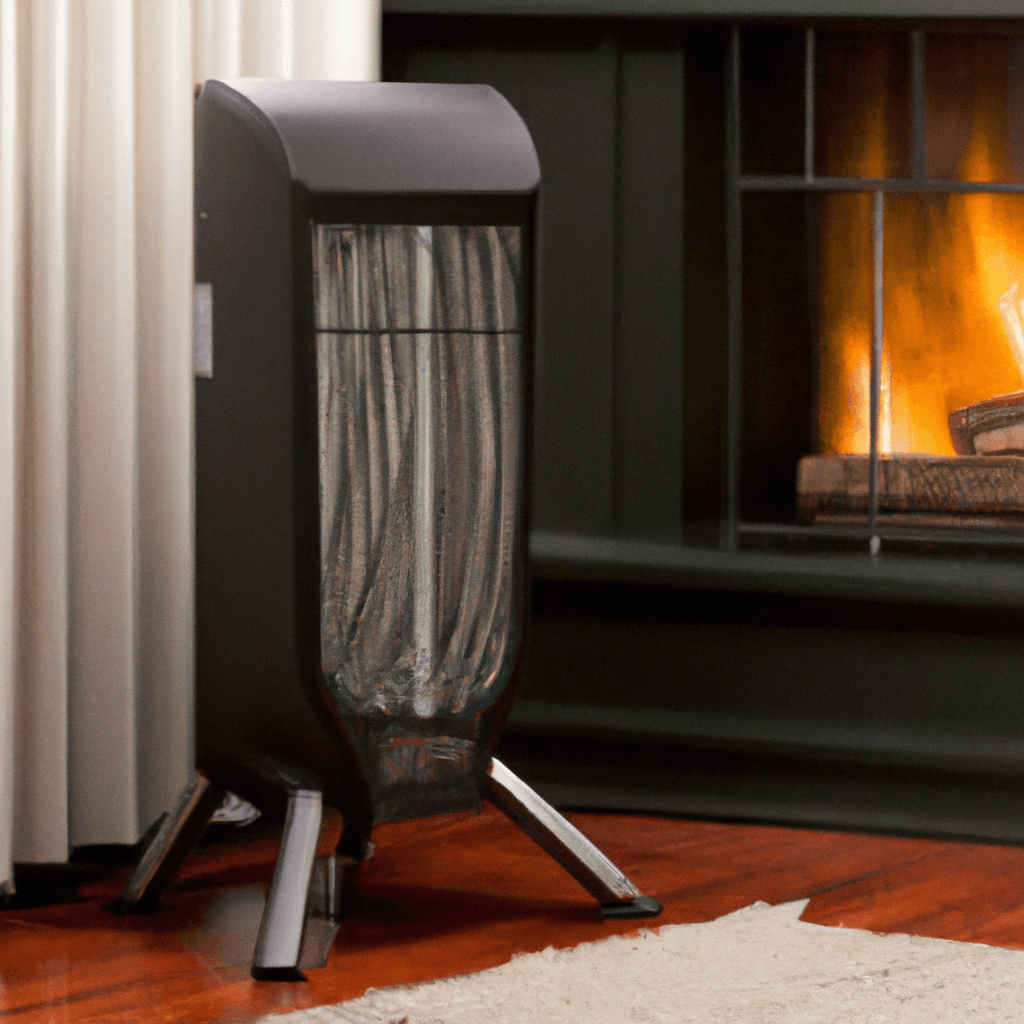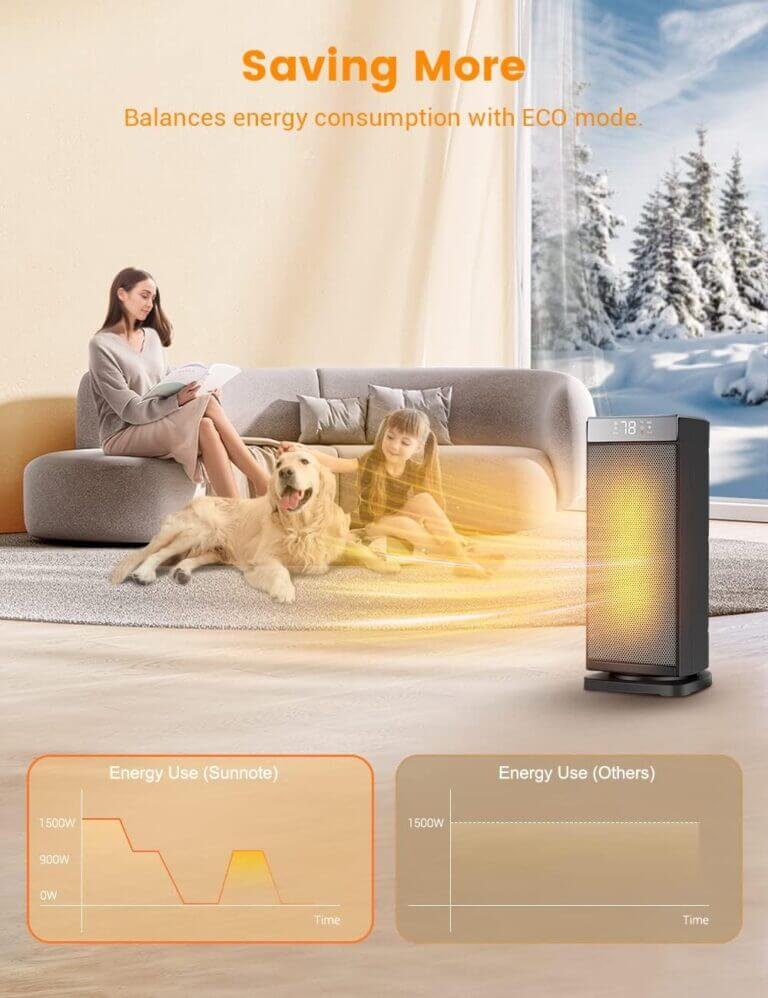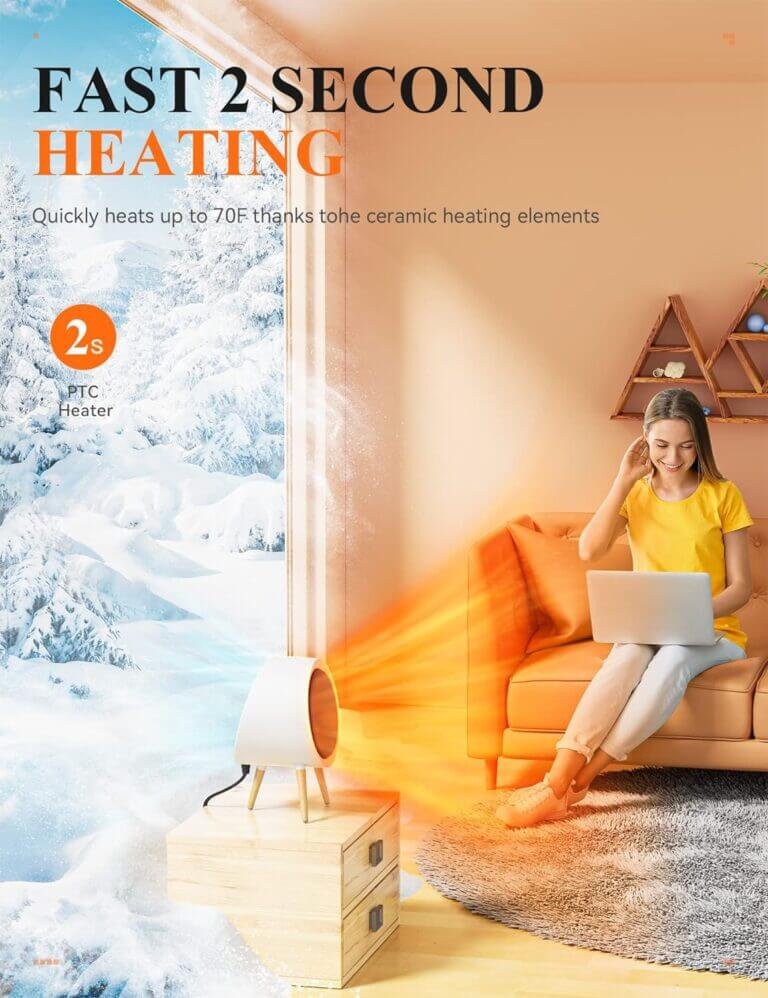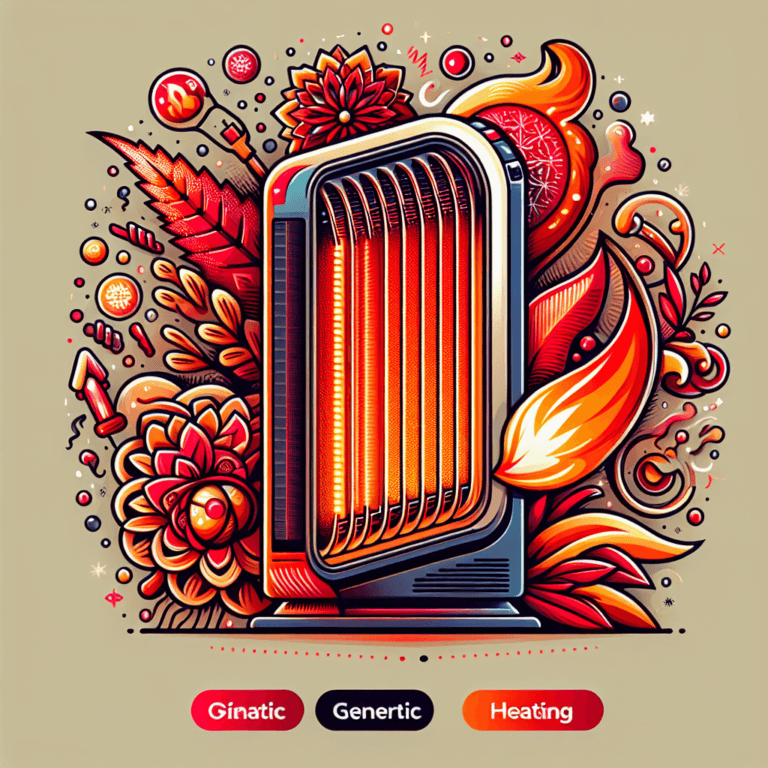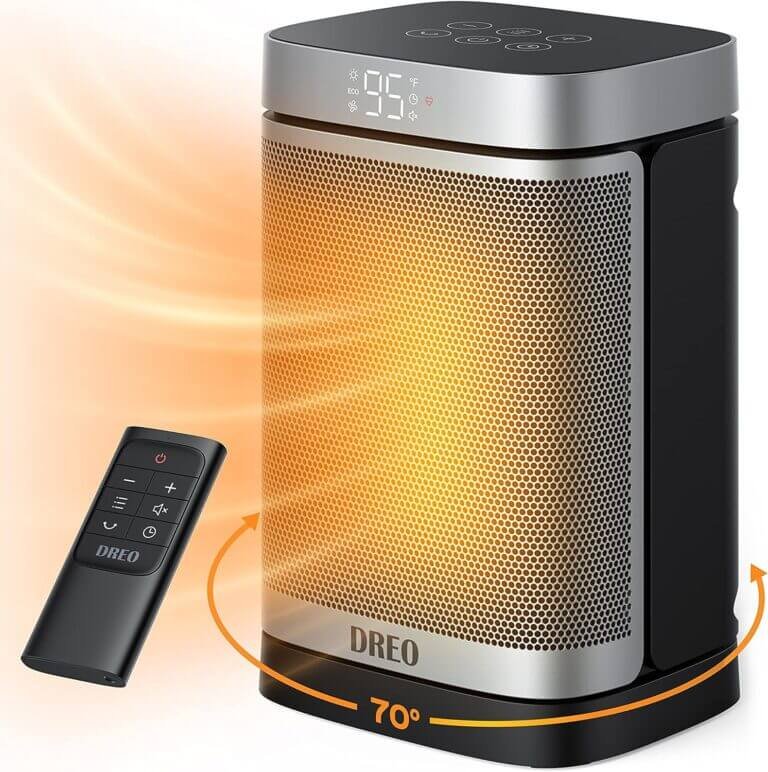Space Heater Safety Tips For Homes
Space heaters can be a convenient and cost-effective way to warm up your home during the chilly winter months. However, it’s crucial to prioritize safety when using these devices to avoid potential hazards. In this article, you will discover some essential space heater safety tips that every homeowner should know.
From proper placement and maintenance to precautions around children and pets, understanding these guidelines will help you enjoy the warmth while keeping your home and loved ones safe.
Choosing the right space heater
When it comes to choosing the right space heater for your needs, there are a few factors to consider. The first factor is the size of the space you need to heat. It’s important to choose a heater that is the appropriate size for the room you plan to heat. A heater that is too small may not be able to adequately heat the space, while a heater that is too large may consume more energy than necessary.
In addition to considering the size of the space, it’s also important to look for safety certifications when choosing a space heater. Look for heaters that have been tested and certified by reputable organizations, such as Underwriters Laboratories (UL) or Intertek. These certifications ensure that the heater has been designed and manufactured to meet strict safety standards.
Another important aspect to consider when choosing a space heater is the availability of safety features. Look for heaters that have features such as tip-over protection, overheat protection, and cool-touch exteriors. These features can help prevent accidents and provide peace of mind when using the heater.
Placement of the space heater
Once you have chosen a space heater, it’s important to properly place it in the room. First and foremost, make sure to keep a clear space around the heater. Keep flammable objects, such as curtains or furniture, at least three feet away from the heater. This will help prevent any accidental fires or overheating.
It’s also crucial to keep the space heater on a stable surface. Place it on a flat, level surface where it won’t easily tip over. Avoid placing the heater on uneven or unstable surfaces that could cause it to fall or malfunction.
Another important consideration is to avoid placing the heater near flammable objects. Keep it away from items such as paper, clothing, or bedding that could easily catch fire. It’s important to be mindful of the surroundings and ensure that there are no potential fire hazards near the heater.
Space Heater Safety and its usage
To ensure the safe use of a space heater, it’s essential to read and follow the manufacturer’s instructions. Each heater may have specific guidelines and safety precautions that need to be followed. Make sure to familiarize yourself with these instructions before using the heater.
Additionally, when using a space heater, it’s important to plug it directly into an outlet. Avoid using extension cords or power strips, as they can overheat and pose a fire hazard. Plugging the heater directly into an outlet will help ensure a stable and safe electrical connection.
Never leave a space heater unattended. Always turn it off and unplug it when you leave the room or go to sleep. This will help prevent any potential accidents or fires that could occur in your absence.
It’s also important to keep children and pets away from the heater. Children may not understand the potential dangers of a space heater and could accidentally touch or knock it over. Pets may also be curious and get too close to the heater, potentially burning themselves. Keep the heater out of reach of children and ensure that pets are supervised when in the same room as the heater.
Maintaining the space heater
Regular maintenance of the space heater is key to its safe and effective operation. It’s important to regularly clean the heater to remove any dust or debris that may accumulate. Follow the manufacturer’s instructions for cleaning and make sure to unplug the heater before doing so.
Inspect the cord for any damage, such as frays or cuts. A damaged cord can pose a fire hazard, so it’s important to replace it if necessary.
Additionally, check the heater for any signs of overheating or malfunction. Look for discolored areas, strange odors, or unusual noises. If you notice any of these signs, immediately turn off the heater and schedule professional maintenance or repair if needed.
If you are unsure about the condition of your space heater or if it has not been maintained properly, it’s a good idea to schedule professional maintenance. A professional technician can inspect the heater, clean it thoroughly, and make any necessary repairs to ensure its safe and efficient operation.
Understanding carbon monoxide hazards
Carbon monoxide is a colorless and odorless gas that can be produced by fuel-burning space heaters. Exposure to high levels of carbon monoxide can be extremely dangerous and even fatal. To minimize the risk of carbon monoxide poisoning, it’s important to choose electric heaters over fuel-burning ones whenever possible.
Fuel-burning heaters, such as propane or kerosene heaters, produce carbon monoxide as a byproduct of combustion. Electric heaters do not have this risk, as they do not burn fuel. By choosing electric heaters, you can eliminate the potential dangers associated with carbon monoxide.
It’s also important to ensure proper ventilation in the room when using a fuel-burning space heater. Keep windows and doors open to allow fresh air to circulate and to prevent the buildup of carbon monoxide. Adequate ventilation will help to safely dissipate any carbon monoxide that may be produced.
In addition to proper ventilation, it’s crucial to install carbon monoxide detectors in your home. Carbon monoxide detectors can alert you to the presence of dangerous levels of carbon monoxide so that you can take immediate action. Install detectors near sleeping areas and on every level of your home for maximum safety.
Preventing electrical hazards
When using any space heater, it’s important to take precautions to prevent electrical hazards. Avoid using heaters with frayed or damaged cords, as these can pose a fire risk. Regularly inspect the cord for any signs of wear and tear, and replace it if necessary.
Avoid overloading electrical circuits. Make sure that the space heater is the only appliance or device plugged into the outlet to prevent overheating. If you need to use multiple heaters in the same room, use different circuits or outlets to distribute the electrical load evenly.
Keep the space heater away from water sources, such as sinks or bathrooms. Water and electricity do not mix and can pose a serious electrocution hazard. Make sure to place the heater in a dry area away from any potential water spills or leaks.
Preparing for emergencies
In the event of an emergency, it’s important to be prepared and have a plan in place. Create a fire escape plan for your home that includes multiple exits and a designated meeting point outside. Practice the plan with your family so that everyone knows what to do in case of a fire.
Keep a fire extinguisher nearby in case of a small fire that can be safely extinguished. Make sure that the extinguisher is appropriate for use on electrical fires and that it is easily accessible.
It’s also important to know how to quickly shut off the space heater in case of an emergency. Familiarize yourself with the specific shut-off mechanism of your heater and make sure that it is easily accessible and in working order.
Safety tips for specific types of space heaters
Different types of space heaters have their own unique safety considerations. Here are some specific safety tips for electric, propane, and kerosene space heaters:
Safety tips for electric space heaters:
- Always plug the heater directly into an outlet, avoiding the use of extension cords or power strips.
- Choose a heater with tip-over protection and overheat protection features.
- Make sure that the heater has a cool-touch exterior to prevent burns.
- Regularly clean the heater and inspect the cord for any damage.
Safety tips for propane space heaters:
- Only use propane heaters in well-ventilated areas to prevent the buildup of carbon monoxide.
- Follow the manufacturer’s instructions for installation and use.
- Keep propane cylinders outdoors and away from the heater.
- Never use a propane heater that is intended for outdoor use indoors.
Safety tips for kerosene space heaters:
- Only use kerosene heaters in well-ventilated areas to prevent the buildup of carbon monoxide.
- Use only clear, 1-K grade kerosene in the heater.
- Ensure that the heater has a safety shut-off feature in case of a tip-over.
- Never leave a kerosene heater unattended or while you are sleeping.
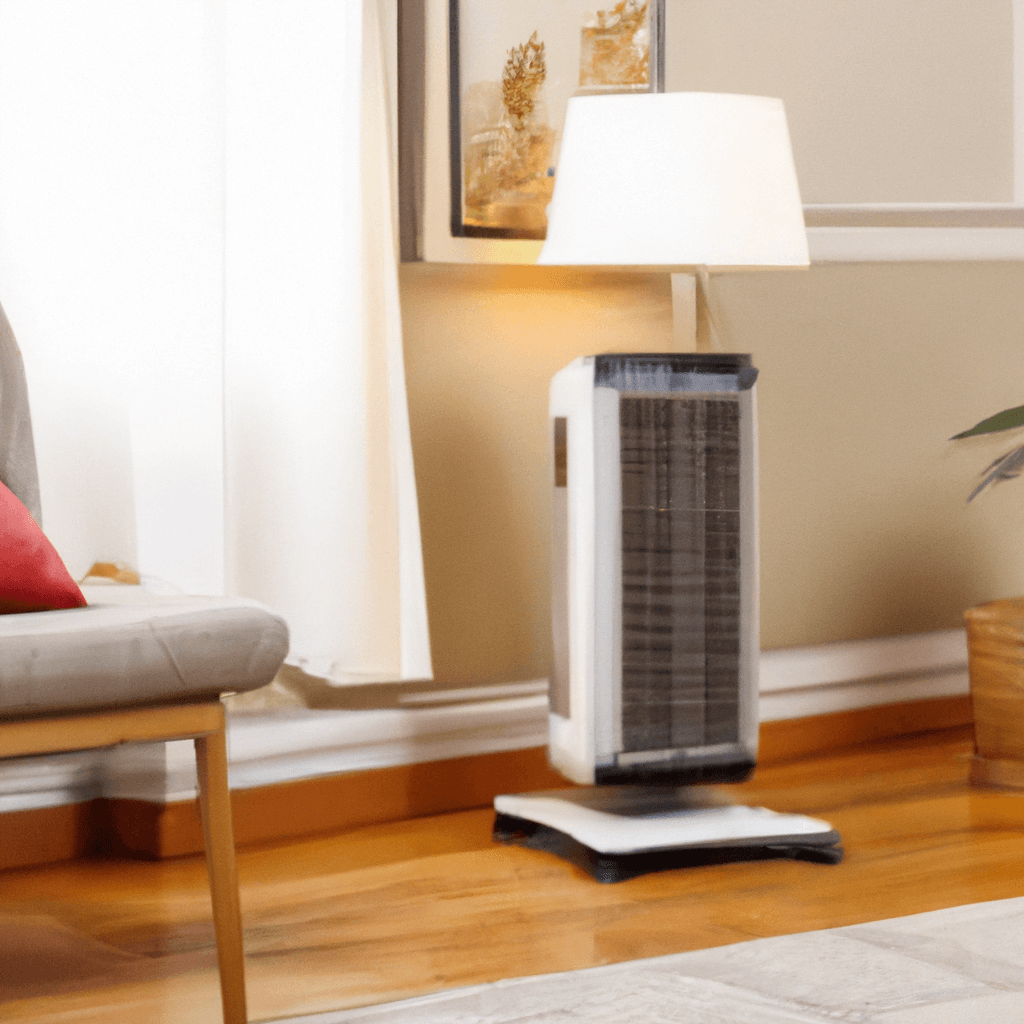
Recognizing the signs of carbon monoxide poisoning
Carbon monoxide poisoning can be life-threatening, so it’s important to be able to recognize the symptoms and take immediate action if exposure is suspected. Common symptoms of carbon monoxide poisoning include headaches, dizziness, nausea, confusion, and difficulty breathing. If you or anyone in your household experiences these symptoms and suspects carbon monoxide exposure, leave the area immediately and seek fresh air. Contact emergency services for assistance and seek medical attention as soon as possible.
Conclusion
When it comes to using space heaters in your home, safety should always be a top priority. By choosing the right heater, placing it correctly, using it safely, and maintaining it regularly, you can greatly minimize the risk of accidents and injuries. Understanding the hazards of carbon monoxide and taking steps to prevent electrical hazards further ensures the safety of you and your loved ones. Remember to always prioritize safety when using space heaters and follow the recommended guidelines to enjoy the benefits of warmth and comfort without any unnecessary risks.
